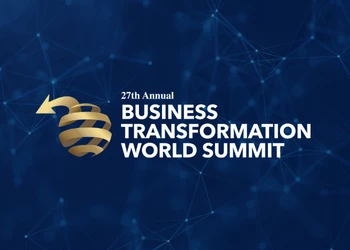Opportunities for big data in retail: Interview with Lastminute.com's William Beckler
Add bookmarkWilliam Beckler, Director of Innovation at LastMinute.com joins IQPC's Helen Winsor ahead of the Smart Data Analytics and Retail Forum to discuss how advances in insight and analytics can be used to provide value for the customer. He outlines the biggest challenges and some tips for others in the industry.
Note: This interview is a transcript of a podcast interview with William Beckler. To listen to the original podcast, please go here.
PEX Network: What does the term big data mean for retailers?
W Beckler: I think what it means - for us at least - is that all of the micro interactions that used to just be ignored because we didn't have a place put them or a means to take advantage of them are now being recorded in databases that let us have deeper insights into the way people are using our products.
PEX Network: What do you consider to be the three biggest challenges in your insight and analytics projects moving into 2013? And why do you think these are big challenges for you?
W Beckler: When it comes to these kinds of projects, everything for us is about value delivered: value delivered to our business and value delivered to our customers. And the blockages for that are a combination of trust. By trust I mean the people who are making decisions and pulling the levers of how our company works need to be in tight relationship with the people who are finding insights in our big data and we need to be marrying big data systems with automated decision making.
That's one piece.
The next piece is data quality. Data quality plagues almost all data projects. Half of the time when you discover something that seems like an actionable insight you've actually found something that's wrong with your tracking or with the way that you are understanding the meaning of your data.
And then the third is really about execution. If you have good data quality and you have trust you still need to be able to execute on implementing the decisions that follow from big data. That means getting analysis in the format where it's aligned to the questions and decisions the company needs to make.
PEX Network: Where do you consider insight and analytics will have the biggest role to play within retailers and e-commerce and why?
W Beckler: There's a lot of areas in which you can target your analyses. You can look at your operations. You can look at squeezing efficiencies out of the way you buy things or the way you operate. But I think the biggest opportunity in any customer-facing company is in understanding the customer because in the end that is where value comes from. It comes from understanding needs and turning those needs into value for the customer. So the opportunities of big data have to do with how tightly we understand the customer.
PEX Network: And what are your top tips for developing analytics and insight in retail in e-commerce in terms of developing a programme?
W Beckler: The starting point for any successful programme is the trust piece. And trust is not something you just hope for. There's activities they actually need to build in trust, and that comes from listening.
If you want to have a successful analytics department that's having a big impact on the company you need to have excellent analysts that people have confidence in. They need to coach those analysts and spend time on relationship building and communication skills so that your analysts and the people who are crunching numbers and coming up with insights, those people are also good at inspiring action in developing relationships with decision makers who are not necessarily mathematicians but who are important in also adding value to the process because that connects them across functions that delivers the most value.
Once you've built that connection the power of your analytics team goes up and the likelihood of success of all your projects goes up.
PEX Network: And how will retailers' services be able to utilise data and analytics in customer experience and loyalty?
W Beckler: There's a lot of touch points when it comes to customer service and loyalty. There's decisions about who you're going to focus on, there's decisions about what is the best loyalty programme and offers within your loyalty programme to induce the kinds of behaviours you're trying encourage. And all of those types of touch points are optimised by having a great understanding of customer lifecycle.
So the way that we handle those kinds of questions is, first, try to size the prize for a touch point by doing what I would call a hit-and-run analytics exercise without building a giant automated system with lots of moving parts. We simply manually create a framework for understanding how we can optimise that particular touch point. We might do it in a way that's not sustainable, that's one off, that uses tools that are not automated tools, but we'll do it as cheaply as possible in order to prove the value of optimising a touch point off the back of data that we collect or that we might want to collect. Once we've proven that value then we build systems to take advantage of those learnings.
PEX Network: And what innovation does smart data and analytics allow across the business?
W Beckler: Travel is a fast-moving field with huge amounts of data that are part of every single transaction. That means that if you have an understanding of how to leverage that data to improve the customer experience there's almost an unlimited number of ways in which you can differentiate yourself from the competition.
Sometimes that differentiation comes from obvious things, where you're showing a product recommendation, like the way Amazon does. And sometimes that differentiation is invisible to the customer but still impacts their experience, for example whether you want to play in metasearch or in page search for a given query. The decision of whether to play affects how much you're spending on marketing and how much you're saving that you can pass onto the consumer and therefore move less cost to them.
Big data allows innovation around how you're spending your money and what the little choices are off the back of the huge amounts of data that flow into a travel purchase.
[inlinead]




















